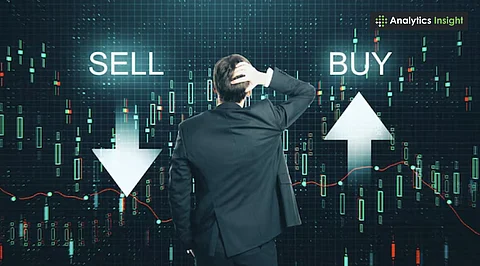

Trade agreements can influence crypto market volatility through shifts in investor confidence and economic stability.
Tariff changes and cross-border trade rules may affect crypto adoption and blockchain use cases globally.
Regulatory terms in trade deals can shape the legal framework and growth opportunities for cryptocurrencies.
Over the last few years, cryptocurrency has evolved from a digital currency to a significant player in global finance, technology, and investment.
Trade deals can shake up economies and regulations, which can also affect crypto. Even if they don't seem connected, these deals can shift crypto prices and change how people use them. Let's examine the impact of trade policies on digital assets and the broader crypto world.
When countries make a trade agreement, it usually brings some positive economic benefits. Investors are more hopeful about trade, money, and business growth. That good feeling can reach other markets, like crypto.
If a country signs a deal that cuts import taxes and boosts its economy, more people might invest in riskier assets like cryptocurrency. But if trade tensions rise or deals fail, worry can cause people to sell off, including crypto.
Tariffs can increase the cost of imports, which in turn slows down the economy. When that happens, some businesses and individuals seek alternative methods to manage their finances. Blockchain, which powers crypto, looks suitable for moving money across borders if tariffs or rules are making it hard to use banks.
Trade deals that lower tariffs can make it easier for companies to use blockchain for shipping, payments, and tracking goods. Trade policy helps crypto tech spread.
Some modern trade deals discuss sharing data, digital payments, and financial regulations. When these deals bring up digital assets, they help decide how crypto will be treated in different countries. Clear rules allow companies to experiment with blockchain without worrying about legal issues.
For example, if countries agree on crypto taxes and how to report them, crypto companies can work in both places without issue. This can get people to invest and make digital assets more common.
Crypto markets? They're all about guessing games. Trade deal news or a change in tariffs? That stuff can send prices all over the place in a flash. Traders buy or sell coins quickly, betting on whether they'll appreciate due to inflation or the world's demand.
Sometimes, this can cause prices to jump or drop fast, even if the trade deal doesn’t mention crypto. This just shows how much crypto prices react to economic news.
Growing markets often get the most out of trade agreements. As their economies get better, interest in crypto increases. In areas where banks are scarce, crypto becomes a way to save and send money.
Trade deals that benefit smaller economies can encourage more people to use crypto in those regions. Local startups might find it easier to start blockchain businesses when trade barriers fall. This makes crypto and related services more popular.
Some countries are exploring stablecoins, a type of crypto tied to a real asset, such as the U.S. dollar, for cross-border trade and payments. When countries trust each other and have good deals, they're more willing to try new ways to manage their finances.
Trade deals that focus on tech can make room for trying out crypto-based payments. This could replace old systems like SWIFT later on.
Even though crypto and trade deals might seem different, they're tied together economically. Trade policies influence investor sentiment, simplify rules, and impact market access, ultimately changing the trajectory of crypto.
As more countries incorporate digital finance into their trade discussions, trade and cryptocurrency will become even more intertwined.
1. How do trade deals impact crypto investor confidence?
Trade deals boost economic optimism, often leading to increased interest in cryptocurrencies.
2. Can trade agreements influence blockchain adoption?
Yes, reduced tariffs and smoother trade terms can encourage businesses to adopt blockchain technology.
3. Do modern trade deals include crypto regulations?
Some newer trade agreements address digital assets, promoting clearer rules across countries.
4. Why do crypto prices react to trade deal news?
Crypto markets respond quickly to economic news, including speculation around trade policies.
5. How do trade deals help crypto adoption in developing countries?
Fair trade deals strengthen local economies, increasing demand for digital currencies and services.
